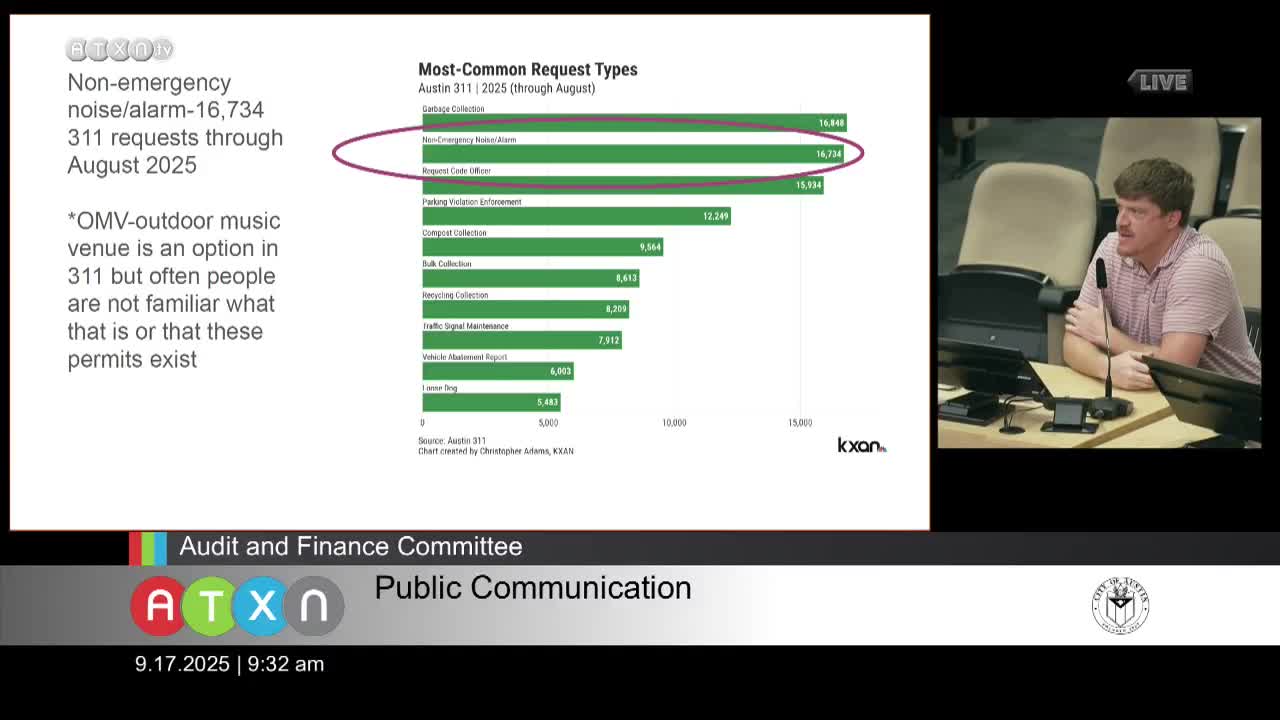Article not found
This article is no longer available. But don't worry—we've gathered other articles that discuss the same topic.
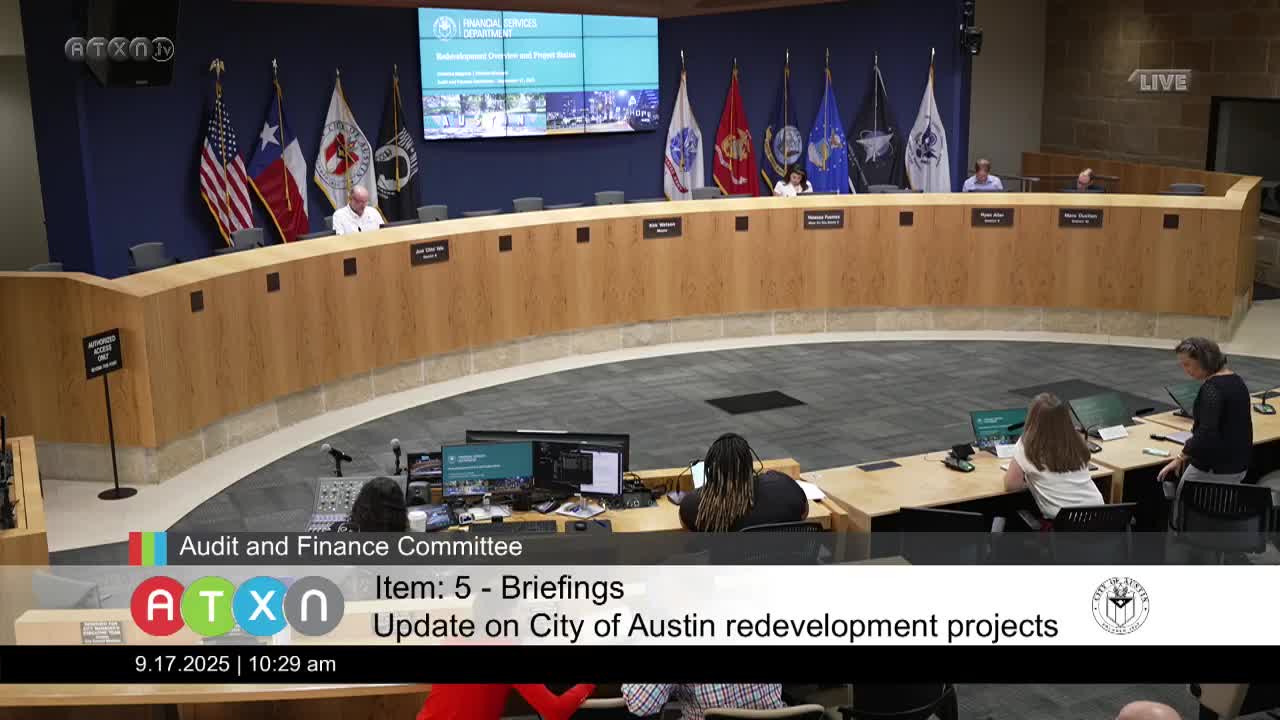
City outlines status of long‑term redevelopment projects including Mueller, Seaholm, Colony Park and Grove Riverside
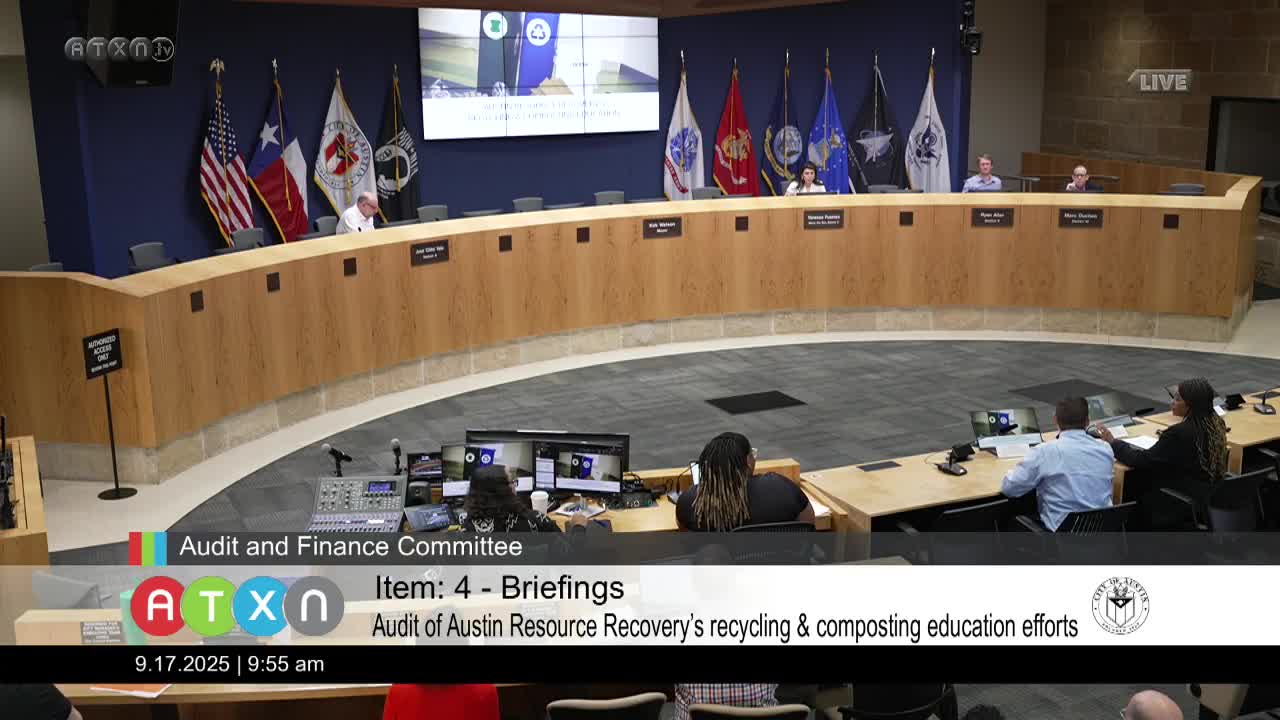
Audit finds Austin Resource Recovery education is aligned with best practices but lacks prioritization and measurable goals
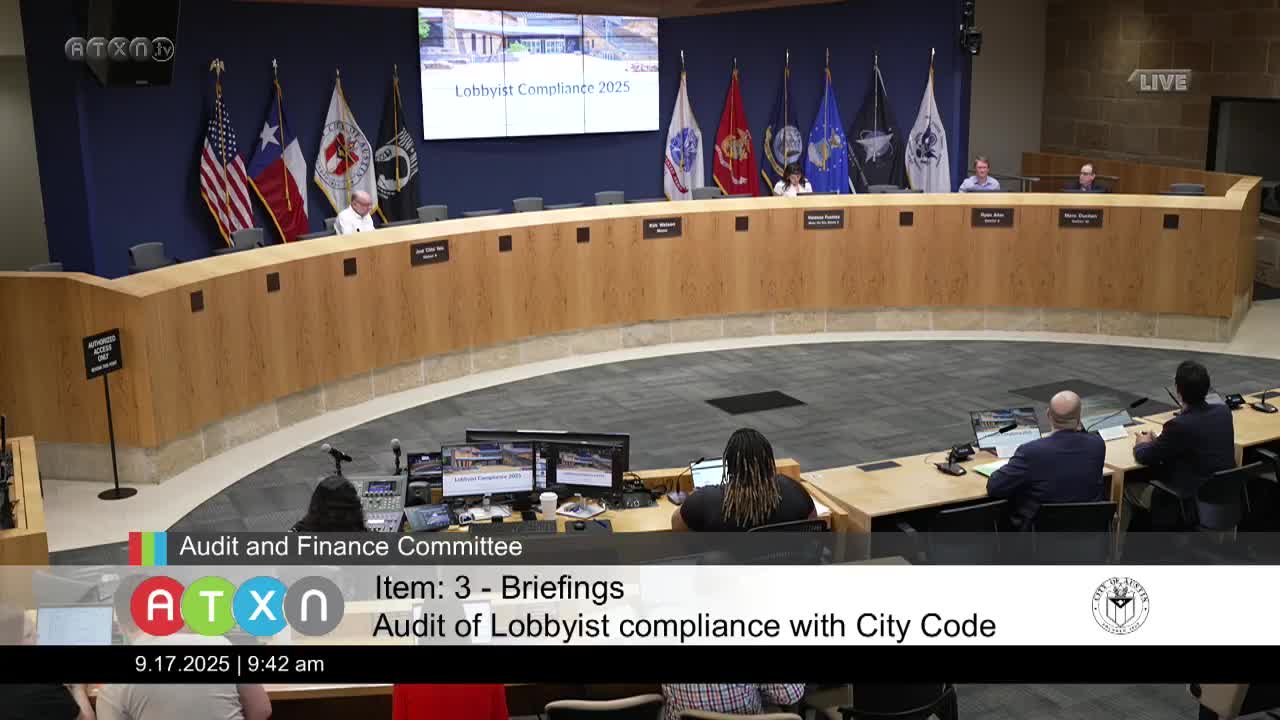
City auditor briefs committee on lobbyist‑reporting audit; recommends code revisions and uniform reporting
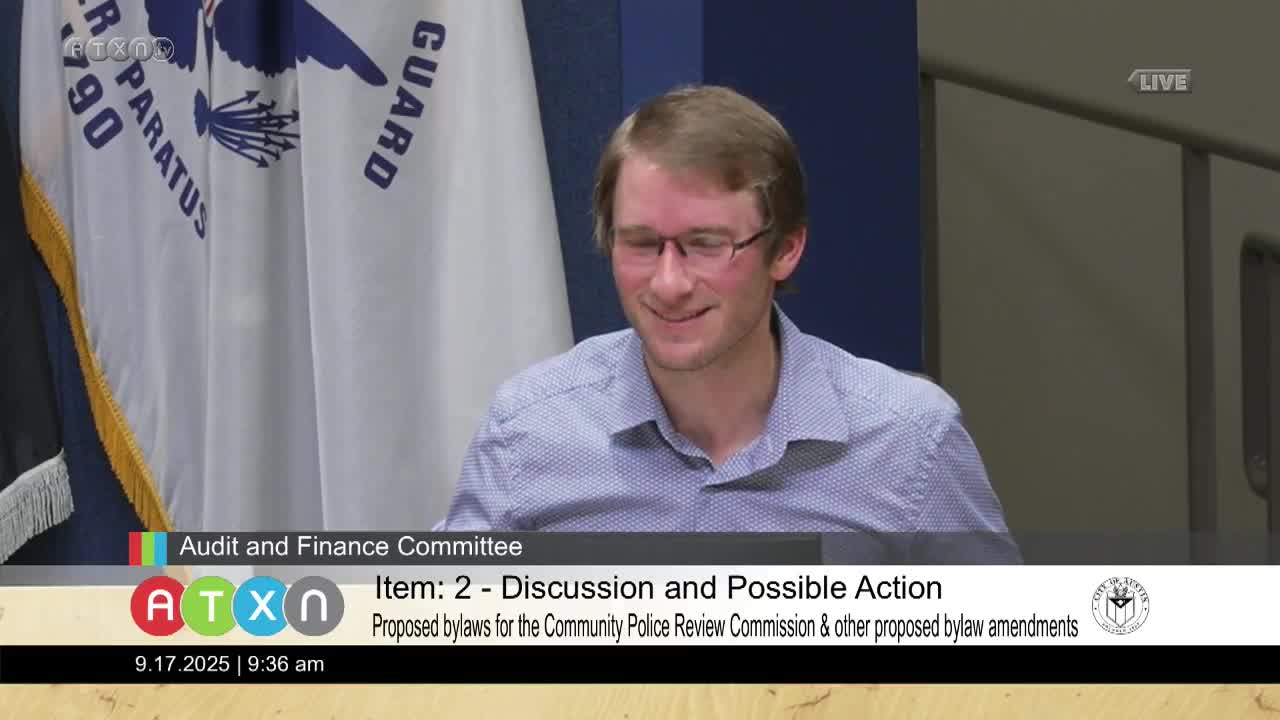
Committee adopts minutes and approves bylaws for Community Police Review Commission and LGBTQ Quality of Life Commission
